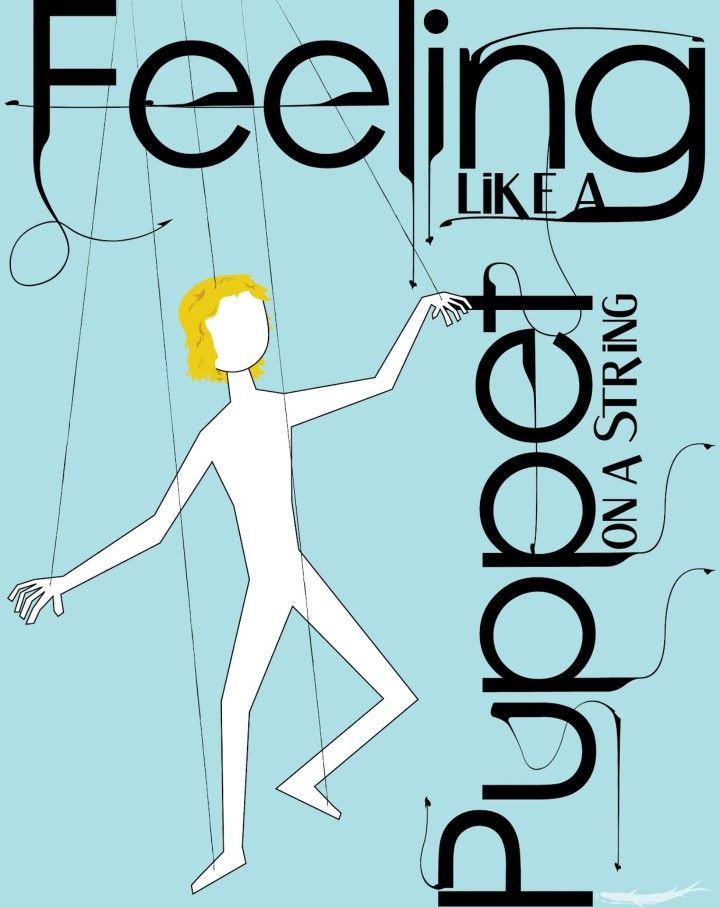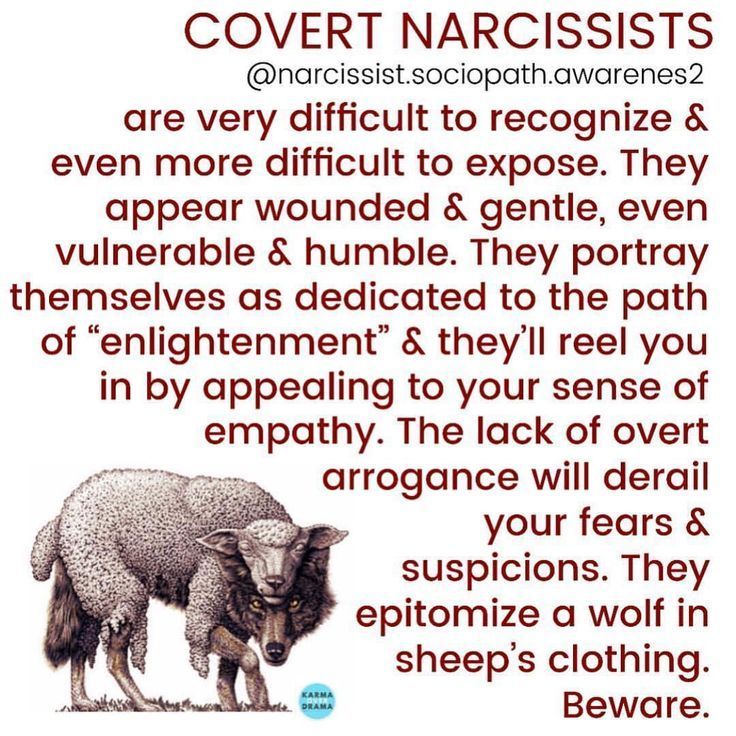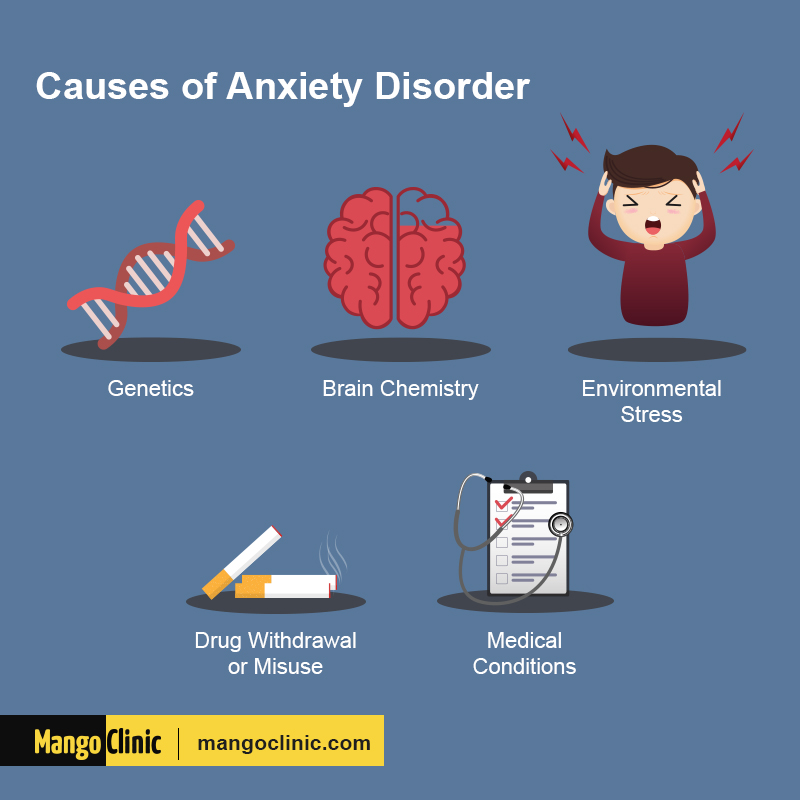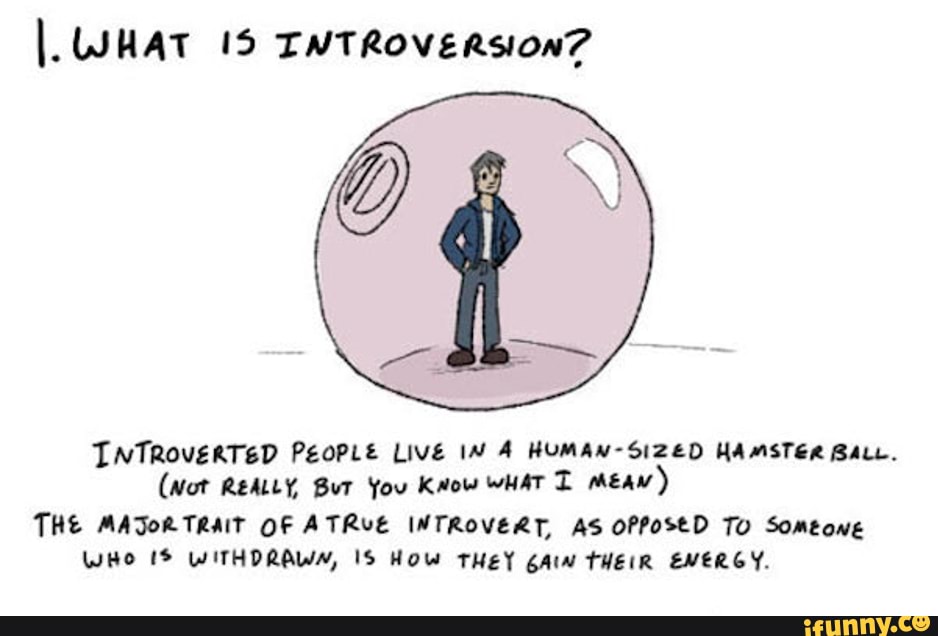My brother is a narcissist
How to Deal with a Narcissistic Brother? 5 Tips That Truly Help
Last Updated on August 15, 2022 by Alexander Burgemeester
“Help my brother is a narcissist!” Is the cry of the sibling forced to deal with a narcissistic brother; you love him to bits, but you are at your wits end with his ridiculous behavior.
Do these characteristics sound familiar to you? He thinks he’s superior to others even though he hasn’t achieved anything in life to warrant this status.
Your brother has a sense of entitlement and needs constant admiration for every little thing that he does.
He lacks empathy and cares about no one but himself. It’s difficult to accept that your brother is a narcissist, but its necessary if you are going to move forward.
It is also important to understand that
narcissistic personality disorder is a condition, your brother didn’t choose to be this way, so try and be as empathetic as possible in your dealings with him. If you want to know how to deal with a narcissistic brother, keep reading.
Table of Contents:
- Signs Narcissistic Brother
- Typical Behavior
- Dealing with a Narcissistic Brother
- Final Thoughts
The Tell-Tale Signs of a Narcissistic Brother
Having a narcissistic brother is distressing, to say the least. He can’t stand you, and you don’t understand why. Having a conversation with him is like pulling teeth. He’s either playing the blame game or word salad.
Word salad combines gaslighting with a dash of lies, confusion, and crazy! He talks endlessly about nothing and creates absurd arguments that make no sense.
Reading Suggestion: Read our Guide to Narcissists In The Family
Your brother can’t keep a secret to save his life; at the dinner table, he will blurt out something you told him in confidence to shame you.
If you don’t live together, you dread the holidays because you don’t know what to expect from your narcissistic brother.
You are truly tired of his behavior and you are looking for a get-out clause.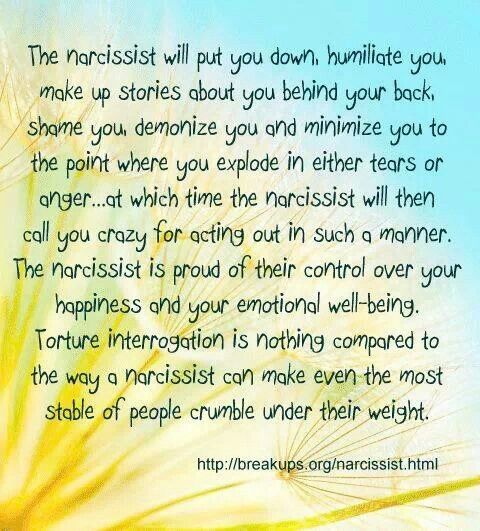 If you want some deeper insight into your brother’s narcissism, you will find it in the next few paragraphs.
If you want some deeper insight into your brother’s narcissism, you will find it in the next few paragraphs.
#1 He is a Pathological Liar
He doesn’t know what the word ‘truth’ means; your brother tells so many lies, you’ve lost count.
They start off as small white lies and then escalate into these grandiose stories that sound like it came straight out of a science fiction movie.
For example, one week he is begging you to lend him money to pay his rent, the next, he has bought a Beverly Hills mansion in cash!
You know full well he’s lying so you press him for more information and because he hasn’t thought about the logistics of his story, he gives you scarce answers.
As you continue probing, he gets angry and accuses you of not trusting him.
Reading Suggestion: The Narcissistic Liar
Or he is constantly lying to exaggerate his talents or achievements. If he’s just graduated from university, it just so happens that he got the highest grades the university has ever seen since it opened!
#2 He Doesn’t Recognize Your Needs or Others
One of the most common symptoms of narcissism is a lack of empathy, they simply can’t experience things from another person’s perspective.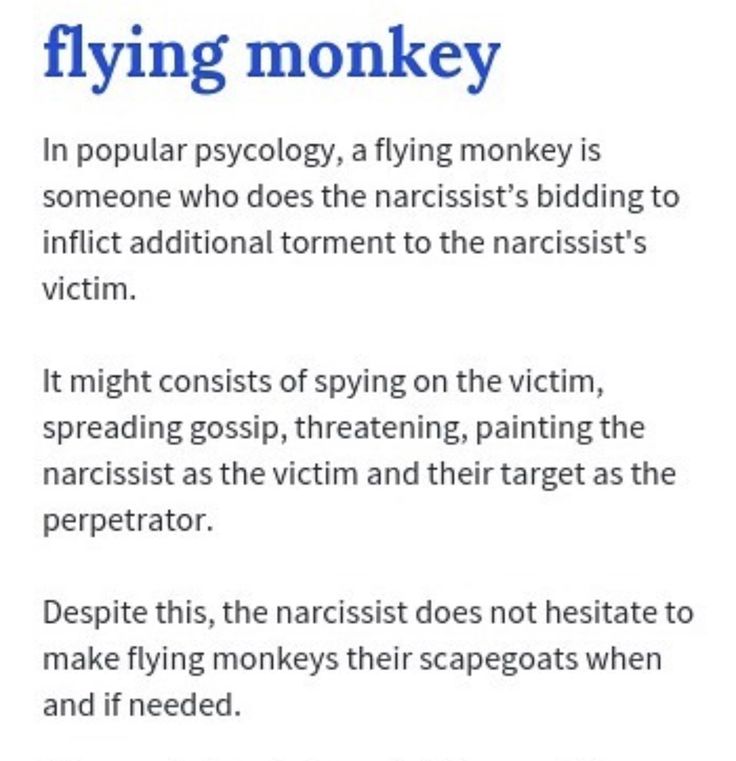
You could be sick in bed with a terrible flu. Your brother will walk into your room and start talking about how marvelous his day was.
Never once does he stop to ask how you are feeling. He then proceeds to go downstairs, make a cup of tea, and doesn’t bother to make you one.
Or, your relationship with your partner is going through a rocky patch, you go to your brother for advice, but instead, he hijacks the entire conversation and spends it talking about himself.
When he gets tired of talking, he politely excuses himself, and you are left sitting their advice less!
#3 He is Very Jealous of You
Narcissists are massive attention seekers; if all eyes are not on them, it’s a problem. If you have noticed that your narcissistic brother does everything in their power to outdo you, that’s why.
Your brother might be a phenomenal artist, he has had several solo exhibitions and he is well established within the art community. You are a writer by profession and you are about to publish your first book.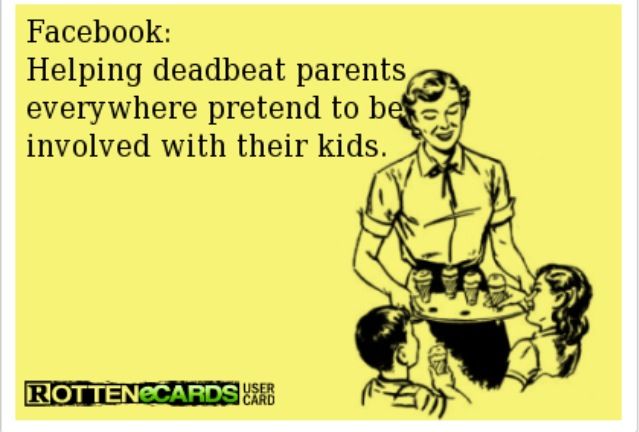
Out of nowhere, your narcissist brother feels the need to come and tell you that someone is writing a book about them. His first point of attack is to let you know he can do everything you can.
Second, he will wait for you to release your book, and then make sure that his launch is bigger and better.
Reading Suggestion: Why Do Narcissists get Jealous?
A narcissist must be number one at all costs, and they will do everything in their power to ensure they uphold that position.
As far as I’m concerned, jealousy is the root to all evil, and your brother will stop at nothing to remain on top.
Additionally, you might of noticed that during conversations, lets say your father says something like,
“My youngest son is so intelligent, he got an award from school for his academic abilities.”
Your brother will feel the need to chime in about their academic achievements. When you have a narcissistic brother, it’s a never-ending competition.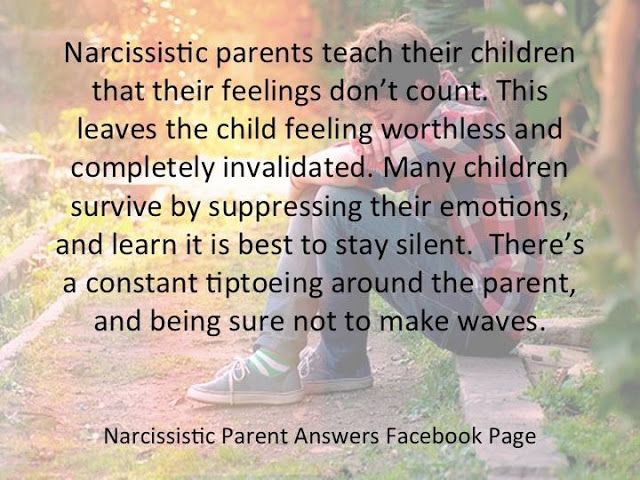
The Typical Behavior of a Narcissistic Brother
Narcissism is a mental illness; they are not conscious of their behavior and they can’t hide it.
When you are familiar with the character traits of a narcissist, no matter how clever they think they are, and no matter how much they think they’ve got everyone fooled, you will know that you are dealing with a narcissist.
Your brother is no different; and in case you are wondering how do narcissists treat their siblings, here are some typical behaviors of a narcissistic brother:
- He has an entitled attitude: Your narcissist brother believes wholeheartedly that you owe him something in life. The worst thing you can ask the narcissist for is a favor. They will hold it against you for the rest of your life. Every time they need something from you, they remind you of the time when they got you a glass of water when you were choking!
- He is always talking about himself: There is no ‘we’, ‘us’ or ‘them’ in the narcissists world.
 All your bother knows is ‘I’. A conversation with a narcissist revolves around nothing other than self.
All your bother knows is ‘I’. A conversation with a narcissist revolves around nothing other than self.
- He does not accept responsibility for his actions: Even if your brother is caught with his hand in the cookie jar, you get your phone out, record him eating the cookie and then play it back to him, your narcissistic brother will find a way to deny it. And he will manage to convince you that maybe what you are seeing on the recording is some type of mistake! Narcissists don’t know the meaning of personal accountability, so personal growth is never a consideration for them.
- He looks down on people: Narcissists suffer from delusions of grandiose; they live inside their own heads and have an inflated view of self. As far as your brother is concerned, he is a cut above the rest, he believes he is royalty and everyone else is a peasant.
5 Tips on How to Deal With a Narcissistic Brother
#1 No Arguing
One of the most annoying things about a narcissistic brother is that they play the perfect son role so well.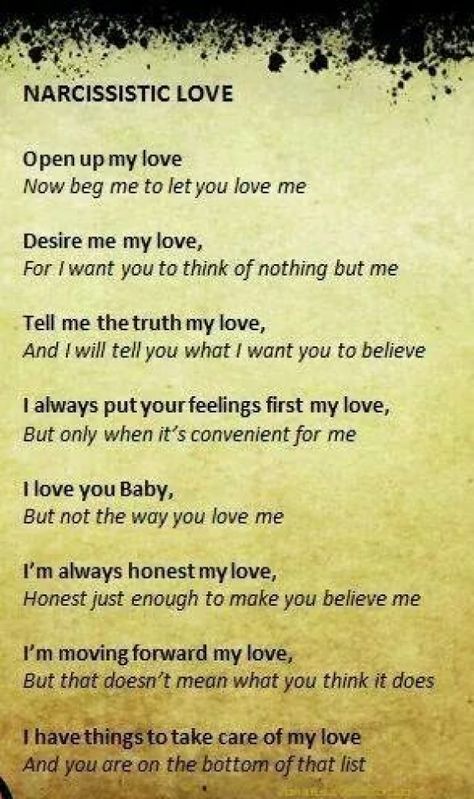
Your parents will often have no idea who they really are because they ensure that the people who matter never get to see that side of them.
They will play the blame game, tell lies about you, and all manner of evil to maintain their goodie two-shoe reputation. You mustn’t argue with your narcissist brother as frustrating as this can be.
For one, you will never win. That argument will last a lifetime until you back down.
Second, they will use it as ammunition against you and go running to your parents and insist you are bullying them. In other words, arguing with your narcissist brother will not benefit you in any way.
#2 Set Boundaries:
Keep them at arm’s length; if you live in the same house, keep a lock on your door so they can’t just burst into your room when they feel like it.
Refrain from talking to them too much, give them very limited information about what you are doing with your life or anything else for that matter.
As mentioned, narcissists love to use what you say against you; therefore, the less information they have about you, the better.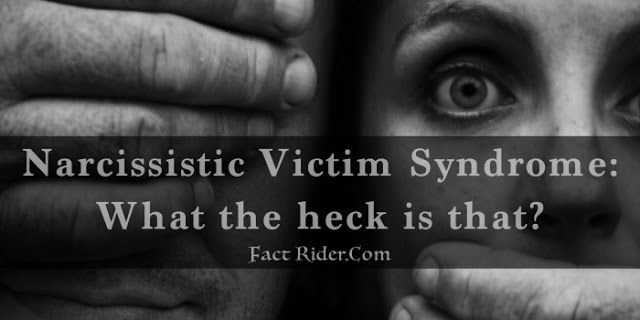
#3 Don’t Call Out Their Narcissism
This is another waste of time; exposure is one of the narcissist’s worst fears. They will go to great lengths to ensure that the reputation they have crafted so well stays intact.
By calling the narcissist out, it means their cover is blown and they will not tolerate that.
At this point, narcissistic rage will set in. Your brother will get so angry that you dared to confront him, that he will stop at nothing to destroy you.
When it comes to narcissistic rage, you can expect your brother to start spreading rumours about you, try and break up your relationship, spoil your gadgets, try and get you written out of the will and whatever else he feels is necessary to stop you in your tracks.
#4 Get Support, Find Help!
In some cases, your brother may have successfully blinded all your family members to believe that he is the nicest, caring, sweetest person in the house.
If this is the case, you will have no chance of getting support from them, holding a family meeting about your brother’s narcissistic behavior will just backfire.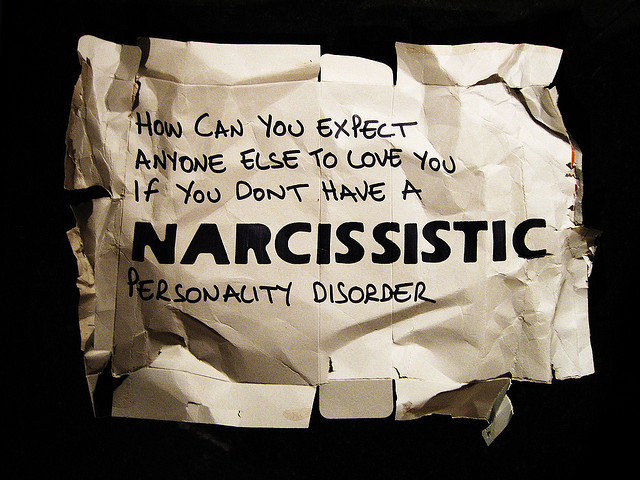
Instead, go outside the home, speak to a trusted friend, or get professional help.
Either way, you are going to need it. In whatever capacity you choose to get support, just make sure you get it, because this narcissistic brother life is no fun!
#5 Go No Contact
If you have exhausted every other option and you’ve found that its simply impossible to maintain a relationship with your brother without your mental health being affected, go no contact.
Unfortunately, family members often cause us the most psychological damage.
I am all for the family, I believe it’s important to have a close relationship with your loved ones.
However, sometimes that’s just not possible; society has conditioned us to believe that family is for life, that we should do everything in our power to keep our families together.
Reading Suggestion: How to deal with a narcissistic son in law?
But when there are members who have no desire to anything else but cause disruption, you will need to separate yourself from them.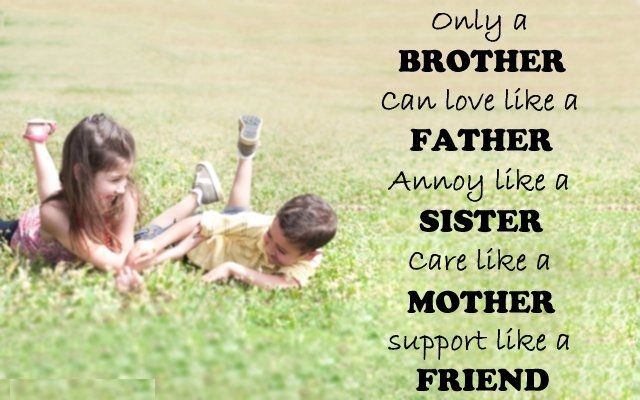
Some people come from a narcissistic family; all of their family members are narcissists, and they just about managed to dodge the narcissist bullet.
A toxic family member is no different than a toxic friendship or a toxic romantic relationship; it’s only a matter of time before you get fed up and leave.
Take the same approach with your narcissistic brother, or they will destroy your self-esteem and suck your life out.
No contact means that you don’t have any contact with them. Block them on your phone and social media platforms.
Don’t go when you have family gatherings, don’t go; you can arrange your own family time without him being there.
Final Thoughts
A lot of empowerment will come from understanding your narcissistic brother if you choose to view it that way. It’s important to understand that now you are armed with this information, it is not your responsibility to try and fix them.
It is a rare occurrence that a narcissist will change; if they do, they need to make that decision on their own.
If you end up going no contact, that might be a wake up call for them, but don’t try and force the issue.
For now, the best advice I can give you is to protect yourself, narcissists have got terrible energy and they will completely drain you if you give them the chance.
Enforce boundaries and do your best to keep them at arm’s length, you will thank yourself for it when you realize how much peace you have when they are not around.
Sharing is Caring. Did you like what you read? Share it with your friends.
26 Signs That Your Golden Child Brother May Be a Narcissist
Source: Rachel Swallows, Creative Commons
Dysfunctional, narcissistic families typically feature inequities, and one of the most common is parental favoritism of one child over another. In a survivalist, hierarchical narcissistic family system, there are many reasons parents choose to elevate one child and devalue another, including personality traits, birth order, and gender.
Of all the roles children play in the narcissistic family, the favored "golden" child is most likely to develop a narcissistic personality because of the toxic mix of enmeshment, neglect, and entitlement they experience.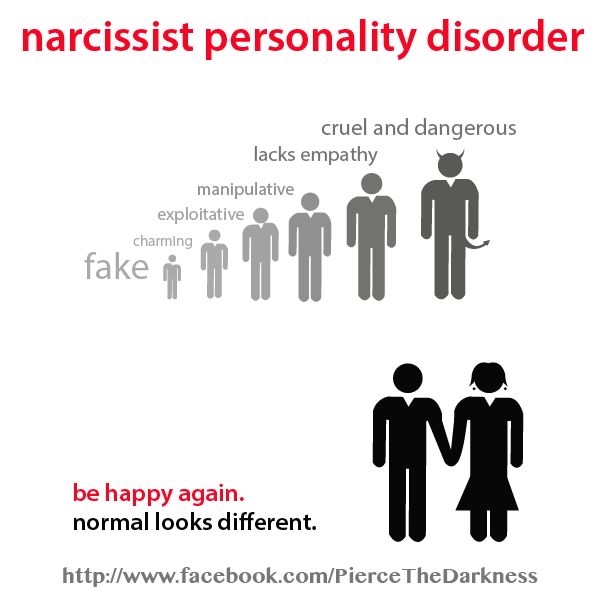 When the child is male, the entitlement and drive to feel special are compounded by societal male hegemony, low emotional literacy, and normalized male aggression.
When the child is male, the entitlement and drive to feel special are compounded by societal male hegemony, low emotional literacy, and normalized male aggression.
Is Your Golden Child Brother a Narcissist?
For siblings, particularly girls, a narcissistic golden child brother can be a profound source of emotional and perhaps physical and sexual trauma. Is your brother a narcissist? Is he scapegoating you? Here are signs:
- Dismisses your feelings and opinions.
- Blames you for family conflict.
- Blames you for your parents' abusiveness toward you.
- Acts as a flying monkey for your narcissistic parents.
- Doesn't ask about your life.
- Contradicts and corrects you.
- Insists on being right.
- Constantly competes.
- Interrupts, monologues, and interrogates.
- Projects his antagonism onto you.
- Acts bored or irritated when you speak.
- Expects attention, agreement, and/or caretaking without reciprocating.
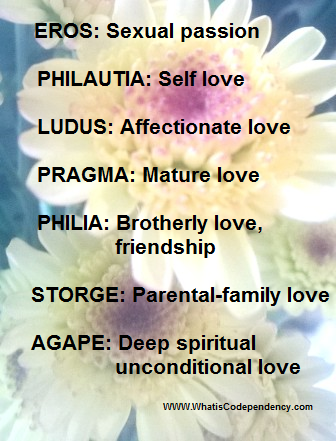
- Is reactive to disagreement or perceived criticism.
- Is verbally and/or physically threatening or abusive.
- Is judgmental of your choices and lifestyle.
- Disrespects your partner.
- Respects your partner over you.
- Withholds family information from you.
- Allows your narcissistic parents to triangulate your communication.
- Denies and gaslights you about family dysfunction.
- Plays the cool rationalist.
- Says or implies you're too sensitive when you react to abuse.
- Sets you up for sabotage.
- Does not acknowledge your experience, knowledge, and accomplishments.
- Displaces his anger at your parents onto you.
- Participates in your parents' smear campaigns against you.
One of the most tragic aspects of life in a narcissistic family system is the erosion and loss of sibling bonds. Narcissistic parents deliberately sow division among siblings as a way to destabilize family members, exert control, feel powerful, and feed on drama. Children who adopt their parents' narcissistic patterns lose or fail to develop empathy and internalize the belief that vulnerability is weakness, love is conditional, and rights and respect are reserved for a chosen few. Often a golden child builds their identity around feeling superior to a subjugated sibling, creating lifelong alienation and cruelty.
Children who adopt their parents' narcissistic patterns lose or fail to develop empathy and internalize the belief that vulnerability is weakness, love is conditional, and rights and respect are reserved for a chosen few. Often a golden child builds their identity around feeling superior to a subjugated sibling, creating lifelong alienation and cruelty.
Strategies to Protect Yourself
For sisters or brothers experiencing ongoing inequity and abuse by a narcissistic sibling, the safest course is to limit or end contact. If you are not able to distance yourself, here are some strategies to protect yourself:
- Stop seeking validation. Stop looking for acknowledgment, understanding, or fairness from your narcissistic sibling (or parents). Your brother's superior status in the family hierarchy was created by your parents, and his sense of identity and self-esteem are heavily dependent on your inferior status in the family. In other words, to feel special he must see you as beneath him; as a narcissist, that feels like survival to him.
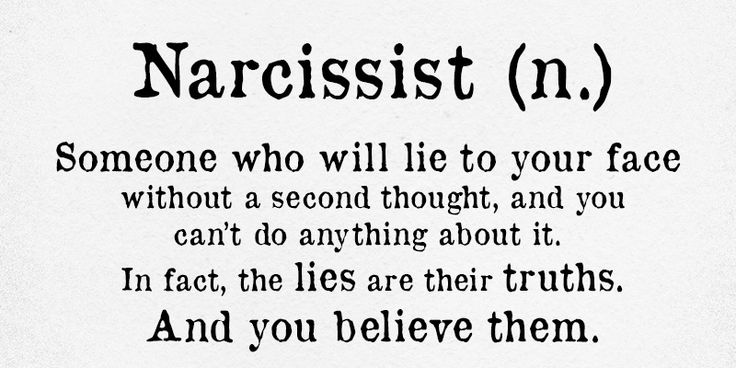
- Don't make yourself vulnerable. Stop explaining and justifying yourself to your narcissistic brother, and don't share your thoughts and feelings with him. It's difficult to accept, but he doesn't care about your needs, feelings, reasons, or perspective, and may use your vulnerability against you.
- Let go of your fantasy of resolution. Children, particularly scapegoated ones, often harbor hope long into adulthood that their golden child sibling will someday gain awareness and reach out to offer acknowledgement and make amends. There may be moments when your narcissistic brother discusses family dysfunction or your parents' selfishness and cruelty. He may even express vulnerability and seek sympathy or support from you about family dynamics. For people with empathy, it's natural to feel compassion for narcissistic family members and hold out hope for resolution of family divisions. But it's important to recognize that although your brother may have moments of insight, he is unlikely to sustain it or look beyond his own experience to reflect on yours.

Having to distance yourself from or let go of narcissistic family members is always fraught with doubt, loneliness, and grief. When it is a sibling you have played with, suffered with, perhaps admired, protected, or taken care of, the loss can bring deep and long-lasting grief. It may be the hardest grief of all.
3 signs that you were raised by a narcissist
53,407
Know yourself A man among people
In the eyes of outsiders, narcissistic parents are very courtesy and will charm anyone in a couple of minutes. But at home, loved ones are constantly terrorized for not living up to their lofty expectations.
Narcissistic experts Wendy Bihari and Craig Malkin talk about the consequences of this parenting style and offer advice to grown children.
Who are daffodils?
Narcissistic personality disorder is recognized as a mental disorder. These people have an inflated sense of self-worth and base their identity on the praise and approval of others.
Their close relationship is superficial and focuses mainly on how they are treated. By themselves, partners and friends are not interesting to them. Narcissists believe that they are better than others, but they also experience a sense of shame when they are criticized or when they get into trouble.
The interests and desires of the narcissistic parent control the life of the whole family
Less than one percent of the population can be considered "clinical" narcissists. Between 2 and 16 percent of people who see psychotherapists at the urging of partners or colleagues have symptoms of a narcissistic disorder.
Although symptoms can vary depending on many factors, Wendy Bihari and Craig Malkin believe that there are several common traits in the personalities of adult children raised by these types of adults.
How are the children of narcissists alike?
1. It is difficult for you to make yourself known
The interests and desires of such a parent dominate the life of the whole family.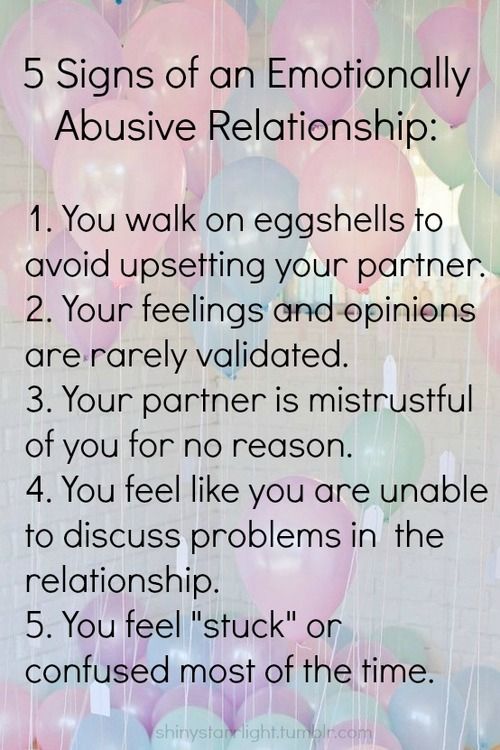 Because of this, children deliberately oppose themselves to others and try to defend their position at all costs.
Because of this, children deliberately oppose themselves to others and try to defend their position at all costs.
But more often they act as if their needs are not important. They allow others to disregard their desires and feelings because they are not aware of their needs and do not know how to express them.
They develop an aggressive style of behavior based on the fear that any weakness in them will be punished
“They can't say 'I insist' or 'I have a say' because that's how a narcissistic parent behaved,” explains psychotherapist Wendy Bihari. And in the subconsciousness of a grown child there is nothing more frightening than his figure...
What to do with it? Learn as much as you can about narcissism. This way you can identify and eliminate dysfunctional attitudes from childhood.
2. You copy the behavior of a parent in many ways
Some children find that the only way to avoid ridicule and humiliation is to become a narcissistic parent themselves. Over time, they develop an aggressive style of behavior based on the fear that any weakness they have will be severely punished and that the best defense is an attack.
Over time, they develop an aggressive style of behavior based on the fear that any weakness they have will be severely punished and that the best defense is an attack.
Narcissists have difficulty setting personal boundaries and see children as extensions of themselves. Insults and unflattering words addressed to someone else becomes their survival tactic, ”explains Craig Malkin. At the same time, in the future, in communication with loved ones, they block feelings, so as not to seem weak and vulnerable.What to do about it? Seek a professional to help you break aggressive behavior patterns, especially if your partner and/or children are suffering from them.
3. You resent your brother or sister
Narcissists have difficulty setting personal boundaries and see children as extensions of themselves. In families with several children, one usually acts as a mirror for the best qualities of the parent.
He gets more attention, support and admiration, but the demand from him is huge.
Another child becomes a scapegoat and "the shame of the family." He doesn’t fit the “pet” either, so you can’t expect anything from him. Both projections reflect different sides of the narcissistic personality and pit children against each other, offering them different models of an unhappy childhood.
Narcissists deliberately play people off for their own purposesWhat to do about it? Share this information with a brother or sister. If you went to the "favorites", you can still harbor a grudge against them, because the brother / sister was subjected to much less pressure. If you were a “rejected child”, perhaps you are still worried about the fact that all the best was unfairly given to a “beloved” son or daughter.
Narcissists intentionally set people off for their own purposes. Their children may find that there is more to them than blood ties.
As hostages who endure hard times together, they can become unusually close as adults.
Text: Xenia Diakova-Tinoku Photo source: Getty Images
New on the site
How a ban on emotions can harm a career: an example from the practice of a psychotherapist with me”
From London Political Scientist to Russian Chef: A Frank Story of Finding Yourself
Robert Plutchik’s Wheel of Emotions: How to Understand Yourself – Use a Simple Tool
What a Highly Sensitive Person Needs: 10 Conditions – Improve Your Life
“My parents think that without a man I am nothing”
“My husband went to his homeland and got married there”
Psychologists have found out why women really like posting selfies so much
Read online “Narcissus in your life. How to claim your rights and restore personal boundaries”, Julie Hall – Litres
Julia L. Hall
The Narcissist in your Life: Recognizing the Patterns and Learning to Break Free
© Pozner V.
V.
© LLC ACT Publishing House, 2015
* * *
Dedicated to my parents, thanks to whom I came into this world and became what I have become, with all my pluses and minuses.
I thank you for all the good things, I forgive you for the pain you have caused, and I hope for healing and peace for all of us, both in this life and in the lives to come.
Acknowledgments
First of all, I would like to express my deep gratitude to my family, Sarah and Lucy, for their tireless support during the work on the book, when I endlessly asked questions, spouted nonsense, ranted and cried. You listened to me and treated me with love, and when it became impossible to listen, at least pretended.
Special thanks to survivors of narcissistic abuse for trusting me with their stories. Your experience is very important and has always been important.
Sherine Wolfe, you have been an incredible help to a depressed girl you barely knew.
You have steadfastly pursued your ideals, and this redheaded mamzel bowed down in gratitude to you. To my agent and venerable godmother Joella Delborgo: Thank you for changing my mind. To my sister in spirit, editor Reni Sedliar, with whom I finally had the last word on this story, you are the best. And thanks to all the other members of the Da Capo Lifelong publishing team.
Many thanks to Elinor Greenberg, Margalis Fjellstad, Caryl McBide, Regina Collins, Fiona Steele, Julie Tenenberg, Sharon Weltfreud, Barbara Mills and Melissa McRitchie.
To my comrade-in-arms Aleta McSeland: Your heart cannot be grasped. To my colleague Colleen Byrum: You are the epitome of the power of nature.
My sincere thanks go to my friend Don Huddleston.
Endless gratitude to Lucia Vratsin, healer and friend.
Thanks to Barry Hillman, Principal of West Sound Academy, whose generosity helped get my family's ship through rough waters. And also to my sisters Adrienne Fuson and Erika Fuson: you are my coveted consolation prize, my rebirth from the ashes!
Boring Foreword
Julie L.
Hall is a journalist and consultant who works with victims of narcissistic abuse. Hall knows firsthand the consequences of being bullied by narcissists. Based on personal experience, she was able to understand the patterns that appear in narcissistic families.
In his book, Hall describes how a family can be affected by the narcissism of one of its members - a parent, spouse or child. She describes the different types of narcissistic behavior and how each leads to boundary violations, misrepresentation, perceptual distortions, attacks on the self-concept, a confused understanding of reality, and even serious health problems.
Hall illustrates techniques by which narcissists get what they want from others without taking any responsibility for their behavior. These are isolation, distortion of reality, control over other people's thoughts, gaslighting and even terror. In addition, she examines the typical reactions of family members to the narcissist's manipulations and the long-term consequences that these patterns lead to in the areas of health, emotional well-being, and even life-changing decisions.
Here is a real treasure trove of knowledge. Lists and examples of narcissistic behavior and its impact on family members, the principles of family rules and roles, and stories from the lives of victims help to better understand the extent of narcissistic exploitation and manipulation. And the strategies offered to family members are practical and based on the principles of empathy for them.
As author of Stop Caretaking the Borderline or Narcissist and Raising Resilient Children with a Borderline Or Narcissistic Parent) , I understand the true value of this information. Hall offers a very realistic view of the NRL and the position of victims of narcissistic abuse, who must always be on the lookout. It will give you hope and help you figure out how to heal yourself and your children.
If you grew up with a narcissist or a self-obsessed parent...
If you married a charismatic but powerful and demanding person... sees nothing good in you…
If you are desperate to understand how your loved one can be so petty, arrogant, picky, cruel and selfish when you show care, sensitivity and kindness…
…this book is for you.

Margalis Fjelstad, PhD, family and marriage specialist, psychotherapist, educator, international expert
Author of Stop Caretaking the Borderline or Narcissist
Fort Collins, Colorado
Introduction
Welcome! As someone who has dealt with a narcissistic parent, partner, or someone else important to you, you must have been through a lot before you got here. This is not a club to join, but hope and wisdom can be found here. This book will not heal your wounds or solve all your problems. But, if you're ready, it will help you understand exactly what you're going through, sort through your feelings, and move toward healing.
Thanks to the Internet and social networks, today it is incredibly fast to share your own and collective experience. We talk a lot and about a lot, but lately more and more often - about narcissism. It seems that the discussion of this topic burst into the public "agenda" like a tsunami. It is estimated that 6.
2% of the total population of the planet [1] suffer from narcissistic personality disorder (NPD) and even more have developed narcissistic character traits. This state of mind concerns most of us, whether we have encountered it in the family or outside it. However, despite the notoriety, narcissism is difficult to recognize and understand, which doesn't stop narcissists from hurting those around them.
A defining characteristic of narcissistic personality disorder is a tendency to use and abuse, which can be hidden from prying eyes. Narcissistic violence is present in many social institutions, but it stems from families in which narcissists rule. For members of such families (children, spouses, and so on), narcissism is an endless test, the cause and source of psychological trauma. Often, narcissistic abuse is passed down from generation to generation.
People who have not personally experienced violence of this kind cannot imagine it and usually downplay it or ignore it altogether.
The fact is that the narcissist operates outside the framework of generally accepted morality. He desperately lacks empathy, and with his grandiose conceit, he masks a deep shame - both from others and from himself. Even many practicing psychotherapists fail to comprehend narcissism and its destructive effects.
Victims of narcissistic abuse may feel like this is happening only to them, but in fact, these kinds of traumas received in different relationships and families have a striking similarity. This is due to the fact that narcissists exhibit regular patterns of thought and behavior that are similar in terms of excessive demands and manipulation. The salvation for survivors of this can be the understanding that they are not alone: all the victims are part of one big unhappy family to some extent, and by realizing this, you will be able to better assess the situation and see the path to healing.
In youth, we all go through narcissistic phases of development, and in adulthood, narcissistic traits help us survive and defend ourselves in a huge harsh world.
The narcissism I explore is not "healthy" narcissism, nor is it just ordinary egocentrism. I am looking at narcissistic personality disorder, a pathological and destructive mental defect, and its traumatic impact on those who have been abused by a narcissist.
The purpose of this book is to offer a plan of action for victims who are looking for answers and ways to cope. Here you will find detailed information about the disorder, including its causes and characteristic features. We will analyze narcissistic behavior in relationships and examine the roles that are offered in a family with one or more narcissists. We will identify patterns of narcissistic abuse and neglect and their traumatic impact, and look at numerous real-life examples that I have learned from survivors and from interviews with clinical professionals. Along the way, we'll look at strategies to help you and your loved ones heal and overcome trauma.
I am not going to demonize narcissists in this book.
Their disorder causes them suffering, and often they themselves become victims of violence. It is only natural to sympathize with the pain that pushes them to such a massive pretense and such a strong need to protect themselves. However, narcissists do terrible harm with little to no remorse. Narcissists cause others, particularly family members, to live in anxiety and confusion all the time, and also use them without considering the emotional, psychological and physical damage they cause.
This book is for people who have been hurt by daffodils; for victims, whatever their social class, skin color, beliefs, sexual orientation and gender. If you have (or have had) a narcissistic parent, partner, or relative in your life, or if there are such people in your loved one's environment, this book is for you. If you have a suspicion that someone important to you is a narcissist and you are trying to figure out how to check it and what to do about it, this book is for you. If you are a scapegoat, a golden child, or an unwilling indulgent (we will return to these terms later), this book is for you.
Let it bring into your life the light of insight, support and help you realize your own value. You deserve this - and much more.
My story
In all my years as an educational writer, journalist, and poet, I never planned to write about narcissism. But when I started working on my memoirs, I couldn't help but pay close attention to my own experience: my childhood was spent in a narcissistic family, and this caused a lingering emotional and psychological trauma. I started writing articles and found a blog about narcissism, The Narcissist Family Files (narcissistfamilyfiles.com). By that time, I had already learned a lot about narcissism, trying to heal from my past. I read a lot, studied, reflected, underwent psychotherapy and talked with people who understood the essence of the problem. But after taking this issue seriously as a journalist, I realized that I still have a lot to learn and that I really want to help other people heal narcissistic injuries.
This book is based on my personal experience, as well as research, interviews with clinicians and victims, consultations and written sources on narcissism, in particular the narcissistic family, where pathological narcissism is born and transmitted from generation to generation.
I know firsthand how deep, complex, and intractable the trauma inflicted by a narcissist is. I felt trapped and sometimes broken, and I endured many more dark days than I deserved. But I also learned a lot about resilience, empathy, the power of hope, and healing. The slightest ray of light pierces the darkness - and dispels it.
How to read this book
The book consists of six parts. You can read it sequentially, from beginning to end, or choose the most relevant fragment for you. I've put together a detailed table of contents so you can immediately decide what to read first, such as roles in a narcissistic family, co-parenting with a narcissistic ex-spouse, or what to expect from an aging narcissistic parent. You may find it helpful to start with the terms defined in the glossary, especially if you plan to skim through the book. Or you can start over and move from chapter to chapter. In each part, you will find stories of victims whose names and personal details have been changed to preserve anonymity.

Whichever way you choose to read, I hope you will read the book in its entirety. You will most likely find that topics that at first glance have nothing to do with you actually concern you. For example, adult children of narcissists who are not in a relationship with a narcissist will still gain valuable information in Part 4 - Narcissists' Partners: they will become aware of the roles of the indulgent parent, codependency patterns, and child roles. And the partners of narcissists can benefit from Part 5 - Children of Narcissists to assess past or current family dynamics and understand how to help children. And even if you're familiar with the features of Narcissistic Personality Disorder (NPD), there's a chance you'll find something new in Part 2 - Narcissistic Personality Disorder, which explains the oft-cited list of nine criteria for NPD by the American Psychiatric Association. and other aspects of the disorder are being explored.
It is important to understand that narcissistic relationships don't just happen.
Patterns almost always work that link our upbringing to our current lifestyle, how we choose partners, friends, leaders, etc. As a survivor and as a writer, I believe in the power and salvation of the explored life [2] . In this book, I want to offer an effective combination of options and strategies to the reader who is trying to make sense of his experience and help him get on the path of healing.
Part 1, Claiming Our Rights, looks at the context of your experience with narcissistic abuse. In this regard, I talk about human rights and the reasons why narcissists violate them. I reach out to those who come out of the first circle of defense - denial and self-blame - to confront the inhumanity of living with a narcissist. And I confirm: you really need to be able to recognize narcissistic pathology, even (especially!) when the narcissist himself does not.
Part 2, Narcissistic Personality Disorder, discusses NPD itself in great detail. I talk about the generally accepted diagnostic criteria for NPD and give different points of view on this disorder.
In addition, this part examines the causes of narcissism and - in detail - the violation of empathy in narcissists and its impact on other people. Types of narcissists have been described, most notably the covert narcissist, the exhibitionist narcissist, and the malignant narcissist. I then explore the causes and mechanisms of violent manifestations of NPD, as well as its patterns in the context of violence. Part 2 concludes with insights into profound and understudied health outcomes for survivors. It also includes interviews with clinicians and an overview of complex post-traumatic stress disorder (CPTSD).
Part 3, "The Narcissistic Family", deals with another fundamental but underexplored topic, including the unspoken rules and roles of the members of such a family. We will explore the patterns that define family life, including isolation, rage, projection, blame, gaslighting, triangulation, false accusations, cognitive distortions, and tragedy. In this part, I will talk about narcissistic "love" and contempt, as well as the realities of intergenerational narcissism and ways to overcome it.
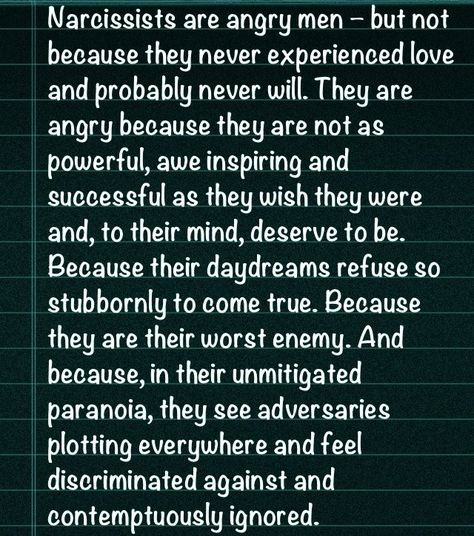
We'll talk about narcissistic partners in Part 4 of the same name, which begins with an analysis of narcissistic relationship patterns from romance to devaluation and breakup. In addition, I will tell you how to determine that your partner is a narcissist. It discusses codependency and traumatic attachment, as well as ways to overcome it, strategies for managing and exiting narcissistic relationships. We will also look at how to raise children with a current and former narcissistic partner, in particular how to support them and help them cope with destructive family roles. At the end of this part, you will learn about Parental Rejection Syndrome.
In Part 5, Narcissistic Children, we will take a closer look at the experiences of children from narcissistic families and begin with the narcissistic parenting style, which includes idealization and devaluation of the child, parentification, neglect, absorption of the personality, infantilization, permissiveness and overpraising.
You will learn about the childhood roles of "hero", "scapegoat", "golden child", "lost child" and "talisman child", how these roles affect adult life and how to avoid their traps. I will tell you why narcissistic parents separate their children, how to properly deal with the “golden” brother or sister, and how to build relationships with them in adulthood.
Finally, in Part 6, "The End of Narcissistic Abuse", we will learn how to deal with narcissistic trauma. First, we will analyze the strategies for working through it: understanding grief and its forms, rethinking childhood stories, interrupting the traumatic cycle (including at the generational level), and also seeking psychotherapeutic help. We then explore ways to help protect against the influence of the narcissistic personality, such as interpreting the narcissist's "cute" behavior, setting boundaries (including cutting off contact completely), and communicating with an aging narcissistic parent. In Part 6, you will learn what healing strategies can be, how to trust your own instincts, what your future prospects are, how to map your self-esteem, how to accept your own vulnerability and internal “outcasts”.
At the end of the book, I offer a look at narcissism in society, talk about the role of forgiveness, and give some advice on the path to healing.
Be patient as you read. It is always difficult to face the painful truth about your family, relationships, and yourself, and it will take time. You may need to re-read some parts and save others for later. Understanding can come unevenly: something will become clear in an instant, and something will stubbornly slip away. Do not give up. You are worth it.
Part 1: Claiming our rights
Chapter 1: Understanding our rights
If you have a narcissist in your life, be it a relative, partner, friend, or someone important to you, it means one thing: your basic human rights are being violated. Self-esteem, integrity and basic freedoms have been repeatedly crossed out and curtailed. You feel broken, trapped, confused, angry, and your soul, and possibly your body, hurts. And it is even worse that someone very close did all this to you, someone whom you loved and who, as you thought, loved you.

Narcissists violate human rights
In 1948, the United Nations issued the Universal Declaration of Human Rights [3] which defines what it means to be human and states that we as a species should be protected by law and agree to it.
The document lists thirty universal inalienable human rights. Let's look at a few examples that are particularly relevant when talking about the narcissistic personality.
1. Equal rights and freedoms
The idea that everyone can exercise their rights and freedoms fundamentally contradicts the narcissist's personal attitudes. In contrast to the position of equality and universal immunity, narcissists believe in their own superiority and consider themselves worthy of special privileges. They see the world as a rigid (and simplified) hierarchy of winners and losers, strong and weak, worthy and unworthy - and this violates the principles of democracy [4] . If narcissists had to accept that life itself bestows equal value on everyone, their illusory superiority would burst, and with it their defense against an inner sense of their own inferiority.
They may claim to be equal and even openly denounce injustice, but in real life they are real tyrants.
2. Equal legal protection
Narcissists see themselves above the law . As with equal rights and freedoms, the concept of equal legal protection runs counter to the narcissist's belief in his own superiority. From the narcissist's point of view, laws and social structures are only useful to the extent that they protect their access to special social positions and freedoms. As long as they get away with it, they manipulate, exploit, compromise law and justice for their own benefit, but easily use those same institutions to restrict and punish others. The best example is when narcissistic spouses or parents lie and manipulate the court in order to punish their exes or children, no matter how much harm it causes.
3. Protection from abuse or abuse
With an infantile need for emotional support, excessive pretensions, and impaired empathy, narcissists are usually cruel and tend to put others down.
They regard life as a zero-sum game, where there is always little power, self-esteem, respect or love, and you can win only if others lose. Narcissists will blame, humiliate, or use others to "win" and use violence as a confirmation of their dominance.
4. Privacy and protection from personal attacks on honor or reputation
Narcissists have little respect for the privacy and independence of others. They are selfish, do not attach importance to the thoughts and feelings of others, and therefore tend to treat other people more as things than as individuals. If they see fit, narcissists will trespass and try to harm you by twisting the facts, using innuendo, lies, and slander.
5. Freedom of thought
This basic right seems so inalienable that the question of its violation is not even raised. But in a relationship with a narcissist, your thoughts and beliefs can be repressed. Narcissists need to be accepted, and in order to achieve this, they interrogate you, bully you, press on you with guilt, and use a variety of other tactics.
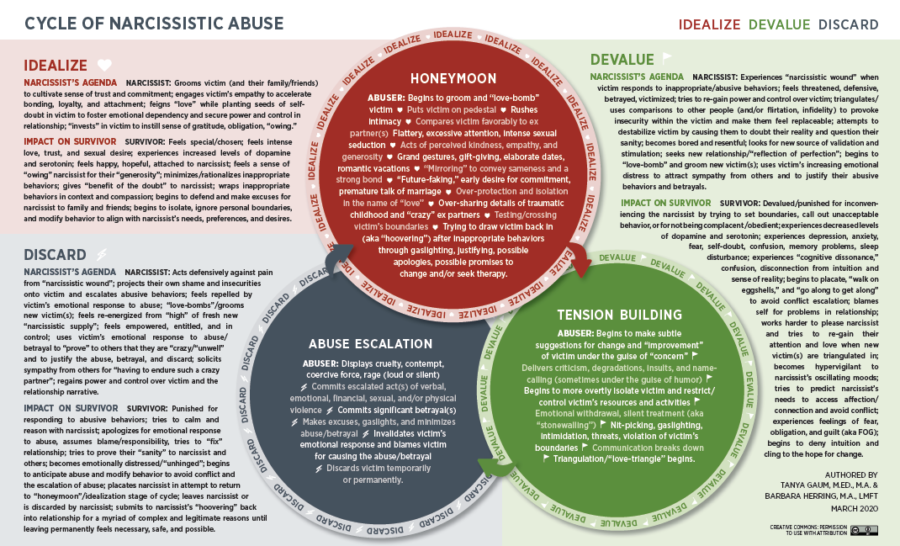
Learn more
